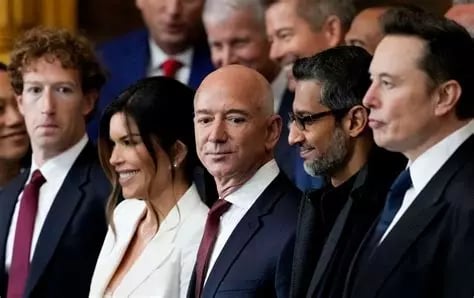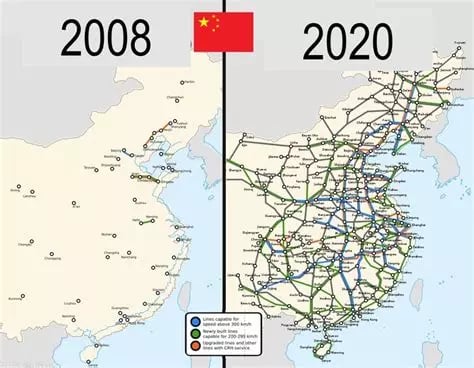The Billionaires are the Problem
There have always been ultra-wealthy people in the US. But the oligarchs of our time wield political influence that the Robber Barons of the Gilded Age could only have dreamed of.

I normally save announcements and admin stuff for the end of the newsletter, but I'm opening with them today.
This week on the podcast, I had a conversation with Sevinc Osmanquizi, an Azeri journalist based in the US who covers events in the Southern Caucasus Region, particularly her home country of Azerbaijan. She’s been a guest on the podcast before, here and here, and this time around we talked about the recent US-facilitated peace agreement between Armenia and Azerbaijan.
She pointed out during our conversation that of the seven wars the President has claimed to have ended, this is the only conflict where both leaders gave him credit for facilitating an agreement. It’s an interesting conversation about the Caucasus Region and the lingering influence of Russia on the former Soviet States, and one I think is worth a listen if you enjoy the newsletter.
Secondly, it’s fall break in the Gulf, and Hope and I are off to Dahab, Egypt on the Sinai Peninsula. There should be a newsletter next week, but if there’s not, it’s travel related.
Onto the main event.
Last week, we began what I think will be a three-part series (who knows?) about the harm that billionaires and their consolidation of wealth have wrought in the US. All throughout the week, I kept getting little reminders of the ways they’ve managed to warp our economy and exert control over society.
To be clear, I’m not naive. There have always been ultra-wealthy people in the US. But the oligarchs of our time wield political influence that the Robber Barons of the Gilded Age could only have dreamed of.
The problem is multifaceted, and even a book-length treatment of it, like Piketty’s Capital in the Twenty-First Century, leaves much unexplored. But fundamentally, I believe our billionaire-dominated moment is both downstream and upstream of broader societal trends.
The abandonment of class-based politics forged in the New Deal: When the American left moved away from class-based politics and toward a purely cultural framework, it ceded the language of economic struggle to the right and left working people feeling politically homeless.
The neoliberal hollowing out of the state over the last 45 years, leading to a fundamental lack of state capacity: Decades of neoliberal policy and tax cuts have stripped the state of the ability to effectively regulate the economy or even deliver basic services, creating a vacuum billionaire-owned private interests are all too happy to fill.
Corporate consolidation of the media environment: A handful of corporations now control nearly every major news outlet, shaping public discourse, gatekeeping alternative voices, and ensuring narratives that challenge capital’s dominance rarely see daylight.
The disastrous Citizens United v. FEC precedent that allows unlimited so-called “independent expenditure” ads during US elections: Citizens United opened the floodgates for billionaires to launder influence through “independent” political spending, effectively putting elections up for auction.
A media and culture that mistakenly equates accumulating obscene amounts of money with brilliance: We’ve built a culture of billionaire simping that treats wealth as proof of wisdom, letting billionaires masquerade as visionaries rather than seeing them for what they are — hoarders of power and opportunity.
The result is a society uniquely vulnerable to oligarchic capture in a way that was unimaginable a generation ago. It feels more like Central Asian, post-Soviet strong man politics than Western Liberal Democracy. We have the politics of Uzbekistan, only without the gorgeous rail system, affordable housing, and public healthcare.
Earlier this week, as I am wont to do, I was reading a piece for class about the amount of high speed rail capacity that China has brought online over the last several decades. The map below tells the story better than I can.

We could have done this.
The US could have a high-speed rail network that links major cities up and down the coasts and throughout the heart of the country. There could be a Heartland Line running from Chicago down through the center of the country towards St Louis or Kansas City and continuing to the Gulf of Mexico connecting Houston and New Orleans.
But you can’t have trains and over a thirty year period pass three different “largest tax cuts in the history of the country”.
It’s trains or billionaires. And we’ve “chosen” the billionaires again and again.
My adult lifetime has been marked by disinvestment in public goods like transit and housing and the rise of US dominance in the design of consumer electronics, like iPhones, and the development of so-called “financial innovation.” This is what we’re known for (besides the wars and defense budget): iPhones and loosely regulated capital markets.
The lack of investment in rail and public transit has made working people’s lives tangibly worse. Car dependence isn’t freedom; it’s a slow bleed of time and money. Every hour spent sitting in gridlocked traffic is an hour stolen from your family or rest. Americans lose hundreds of hours a year idling behind a steering wheel because federal and state governments, captured by the auto and oil lobbies, refuse to build the rail systems that every other developed nation takes for granted.
Likewise, the government’s abdication of leadership on housing has produced an artificial scarcity that punishes renters and first-time buyers alike. For decades, we’ve treated housing policy as a local nuisance instead of a national priority, allowing developers and speculators to set the terms. Today, institutional investors and hedge funds control massive amounts of single-family rental homes in the US, turning what should be a basic human necessity into another speculative asset. They outbid working families for starter homes and soak renters with ever-escalating rents.
The reality today is that the things that should make life easier—affordable housing and reliable transit—have been turned into profit centers for billionaires who will never have to worry about them.
So in brief that’s how billionaires cause you to be stuck in traffic and drive up the cost of housing. Next week we’ll look at how billionaires distort healthcare costs and the moral toll their dominance is taking on society.